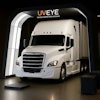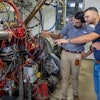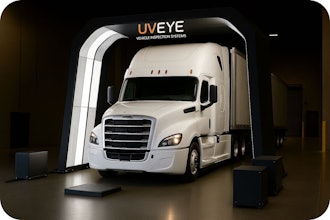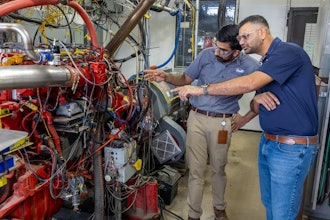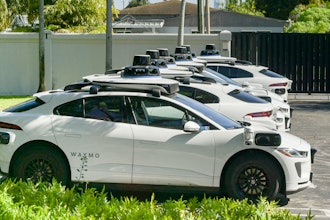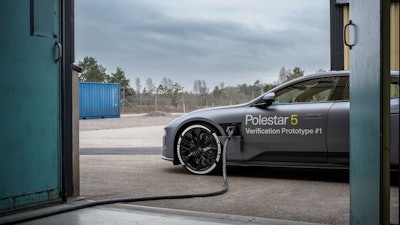
Polestar and fast-charging battery provider StoreDot have successfully demonstrated the implementation of StoreDot’s Extreme Fast Charging (XFC) technology in a car for the first time, charging a Polestar 5 prototype from 10-80% in just 10 minutes. The fully driveable verification prototype saw a consistent charge rate starting at 310 kW and rising to a peak in excess of 370 kW at the end of charging.
This world-first demonstration of a 10 minute 10-80% extreme fast charge using silicon-dominant cells in a driveable vehicle – rather than individual cells in a laboratory environment – is the continuation of Polestar’s commitment to developing the best driving experience for the future through innovative technology partnerships. The specially commissioned 77 kWh battery pack – which has the potential to be increased to at least 100 kWh, could add 200 miles (320 km) of range to a mid-sized electric car in 10 minutes.
This XFC test by Polestar and StoreDot battery engineers was designed to demonstrate proof-of-concept for XFC battery technology that could be applied to future Polestar vehicles.
StoreDot’s XFC technology uses silicon-dominant cells with an energy density on par with NMC cells, and does not require specialist cooling systems in the vehicle. The experimental XFC battery’s modules have a structural function which improves mechanical properties and cooling ability while maintaining or reducing weight levels, with high recyclability and serviceability also paramount in the design of the pack.
In today's commercial EV batteries, fast charging rates can vary greatly depending on the battery’s state of charge (SOC), sometimes dropping significantly as SOC increases. During this test, Polestar saw charging speed rise from 310 kW at 10% SOC to over 370 kW at 80% SOC, proving the technology’s steady charging rate with no significant change in charging speed or efficiency whenever a driver decides to stop within this wide state-of-charge range.
Importantly, the test proves XFC technology works with today’s DC charging infrastructure, which continues to feature more high-power DC chargers of 350 kW or higher.
This means drivers will be able to spend less time stopped to charge their vehicle, which for a 10-80% charge on many modern EVs could still take around 30 minutes. By reducing that time to 10 minutes, the charging time for a vehicle with XFC technology is much closer to what you would experience when filling a car with petrol. And thanks to the consistent charge speeds on offer, with a suitable charger, consumers could stop for five minutes at 50% SOC and continue their journey with over 80% SOC.


